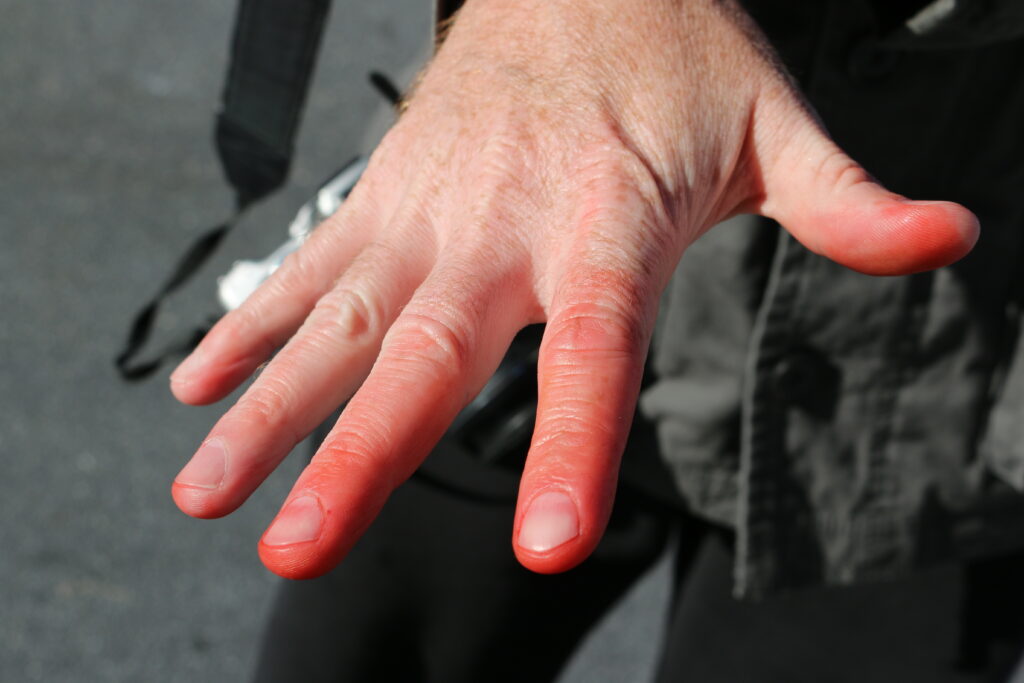Eicos’ Aurlumyn (iloprost) received approval from the US Food and Drug Administration (FDA) for the treatment of severe frostbite, making it the first approved medication for the condition.
Aurlumyn injection is approved for the treatment of adults with severe frostbite to reduce the risk of finger or toe amputation. More often than not, severe frostbite leads to the need for amputation.
Originally developed by California-based CoTherix, the drug was first approved in 2004 for the treatment of pulmonary arterial hypertension (PAH) under the brand name Ventavis. At the time, it was the only inhaled therapy for PAH in the US.
In the US, on average, around 1,300 people die of frostbite each year. The overall incidence of frostbite injury in the US is 0.83 of 100,000 people. At least 20 percent of patients who experience injury from frostbite experience disability due to amputation. Frostbite disproportionally affects the homeless population. In Canada, frostbite-related amputations reached a ten-year high in Winnipeg, Manitoba. Iloprost isn’t currently approved for treating frostbite in Canada but it can be prescribed off-label to treat the condition.
According to the Centers for Disease Control and Prevention (CDC), frostbite is classified as an injury that occurs due to freezing, leading to numbness and loss of color in the extremities such as the fingers, toes, nose, ears, cheeks and chin. It can cause permanent damage and severe cases can result in amputation. Signs and symptoms of frostbite include numbness, white or grayish-yellow skin and skin that feels firm or waxy.
People who have poor circulation and who don’t dress appropriately for the weather are at the highest risk of developing frostbite.
Frostbite occurs in various stages, from mild to severe. Mild cases either require painkillers and antibiotics or don’t necessitate any medical treatment and leave no lasting damage to the skin. Severe cases involve freezing of the skin and deeper tissues, impeding blood circulation, causing joint and muscle dysfunction and the potential need for amputation. Blisters, which can affect all layers of skin, typically form 24 hours after exposure and tissue turns black if it starts dying.
Related: Vyjuvek Gets FDA Nod as First Topical Gene Therapy for Rare Skin Disease
The active ingredient in Aurlumyn is iloprost, a vasodilator that opens up blood vessels and stops blood from clotting.
Aurlumyn has a warning and precaution on its label for the potential of causing symptomatic hypotension.
“This approval provides patients with the first-ever treatment option for severe frostbite,” said Norman Stockbridge, MD, PhD, director of the Division of Cardiology and Nephrology in the FDA’s Center for Drug Evaluation and Research (CDER). “Having this new option provides physicians with a tool that will help prevent the lifechanging amputation of one’s frostbitten fingers or toes.”
Aurlumyn’s approval was based on an open-label, randomized controlled trial involving 47 adults with severe frostbite. The cohort was divided into three treatment groups: Group 1 received iloprost intravenously for six hours every day for up to eight days; Group 2 received other unapproved drugs for frostbite with iloprost; Group 3 received other drugs without iloprost. All three groups were administered aspirin intravenously for pain relief and standard of care.
The primary efficacy measure as a bone scan taken seven days after initial frostbite used to determine whether amputation of at least one finger or toe was necessary.
Results showed that none of the 16 patients who received iloprost alone needed amputation. Of the 16 patients in Group 2 who received both iloprost and other frostbite medications, three required amputation, while nine of 15 patients in the group that just got standard frostbite drugs without iloprost had to get an amputation.
Aurlumyn is expected to be available this Spring but its list price has not yet been disclosed.
Eicos is also exploring the use of iloprost in treating circulation disorders such as extracorporeal membrane oxygenation (ECMO) and systemic sclerosis, a condition that may put patients at risk of needing their fingers or toes amputated.
Aurlumyn was granted FDA Priority Review and Orphan Drug designations for the indication.












Join or login to leave a comment
JOIN LOGIN